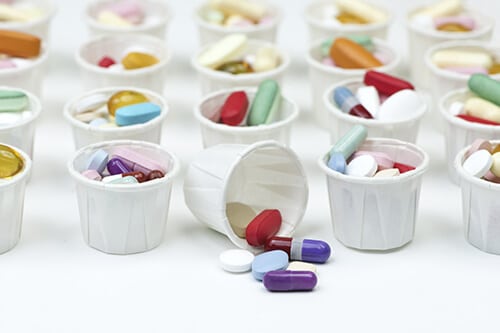You have a drinking problem. You want to quit, but the fear of withdrawal symptoms holds you, hostage. Luckily, there are now alcohol detox medications that can make the process more comfortable. Most importantly, they can empower you to quit drinking.
Alcohol Withdrawal Timeline

Most people typically don’t experience withdrawal symptoms until about eight hours after the last drink. You’ll initially experience trembling hands, a building headache, and anxiety. Often, without a drink or medications for alcohol detox, these symptoms intensify.
After a full 24 hours without a drink, there’s the possibility of seizures. Your brain was used to the steady influx of alcohol’s chemicals. Without them, it must recalibrate. For some, this may result in the development of seizure activity.
That’s one of the reasons why it’s vital to detox at a facility with medical supervision. By the time you reach the 48-hour mark without a drink, you may experience auditory or visual hallucinations. Some people also struggle with severe anxiety or depression. If you’re one of the few people who’ll develop delirium tremens, it’ll happen around 72 hours.
Alcohol Detox Medications Take the Pain and Danger out of Withdrawal
You don’t have to suffer through the pain and danger of at-home withdrawal. At a high-quality rehab facility, medications for alcohol detox offer relief. A
benzodiazepine taper deals with the mounting anxiety you might experience. It doesn’t have to become a panic attack.
Acamprosate is an FDA-approved medication that supports the return of normal brain functions. Ondansetron is an anti-nausea drug, which assists people with pronounced gastro-intestinal upset. Naltrexone can work to reduce cravings for alcohol. Besides that, gabapentin is a medication that may prevent or treat seizures.
Medications are Part of a Bigger Detox Picture
It’s important to note that there’s more to ending a physiological dependency than taking alcohol detox medications. High-quality detox combines evidence-based modalities to help you take this step. Examples include:
By combining various therapeutic approaches, you also maximize your approach to ending chemical dependency. It increases your overall sense of well-being. Therefore, you’re far more likely to stick with the process. Most importantly, the success of this phase of treatment encourages you to move on to rehab.
During the second phase of treatment, you deal with the psychological aspect of alcohol addiction. It assists with craving control and post-acute withdrawal symptoms. Similarly, it helps you to plan for lifelong sobriety. As you develop coping and life skills, you uncover new ways of structuring responses to triggers.
At last, are you ready to rise up again from dependency? With the help of alcohol detox medications, it’s possible to do so safely. Contact Ardu Recovery Center today at
801-810-1234.
 Most people typically don’t experience withdrawal symptoms until about eight hours after the last drink. You’ll initially experience trembling hands, a building headache, and anxiety. Often, without a drink or medications for alcohol detox, these symptoms intensify.
After a full 24 hours without a drink, there’s the possibility of seizures. Your brain was used to the steady influx of alcohol’s chemicals. Without them, it must recalibrate. For some, this may result in the development of seizure activity.
That’s one of the reasons why it’s vital to detox at a facility with medical supervision. By the time you reach the 48-hour mark without a drink, you may experience auditory or visual hallucinations. Some people also struggle with severe anxiety or depression. If you’re one of the few people who’ll develop delirium tremens, it’ll happen around 72 hours.
Most people typically don’t experience withdrawal symptoms until about eight hours after the last drink. You’ll initially experience trembling hands, a building headache, and anxiety. Often, without a drink or medications for alcohol detox, these symptoms intensify.
After a full 24 hours without a drink, there’s the possibility of seizures. Your brain was used to the steady influx of alcohol’s chemicals. Without them, it must recalibrate. For some, this may result in the development of seizure activity.
That’s one of the reasons why it’s vital to detox at a facility with medical supervision. By the time you reach the 48-hour mark without a drink, you may experience auditory or visual hallucinations. Some people also struggle with severe anxiety or depression. If you’re one of the few people who’ll develop delirium tremens, it’ll happen around 72 hours.
